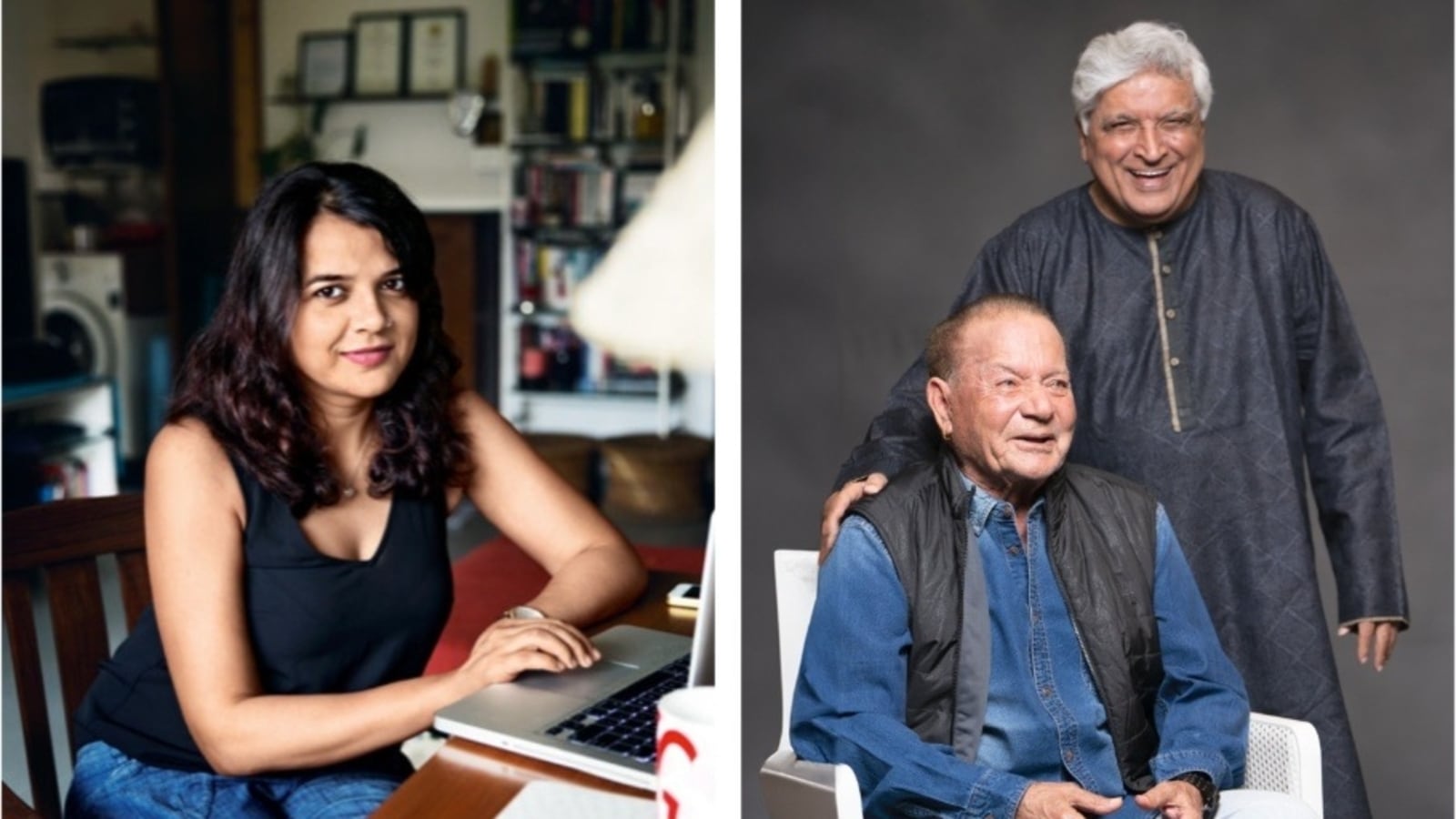Namrata Rao has shaped several Hindi films over the years as an editor, including Sujoy Ghosh’s Kahaani (2012), for which she won a National Award. Now, she turns her attention to direction with Angry Young Men, a three-part docuseries on Salim-Javed, the scriptwriting duo of the 1970s and 1980s who invented a new language in Hindi cinema and gave birth to the angry young man character type, most famously played by Amitabh Bachchan during his meteoric rise. (Also read – Angry Young Men review: A candid and fascinating update on Salim-Javed’s legacy)
In an exclusive interview, Namrata talks about her process of filming the documentary series, whether she was worried about any conflict of interest, and why she felt the need to ask some awkward questions.
Extracts:
It’s been more than 40 years since Salim and Javed parted ways. When you had the opportunity to bring them together to tell their own story, why did you decide to interview Salim Khan and Javed Akhtar separately and not in the same frame?
I found it more interesting to film them separately. Of course, we had logistical problems because we started filming during the pandemic. It was very difficult to film anyway. We had to keep our distance. They are older, so it wasn’t very convenient for them either.
I always wanted to film them separately and then get them together for one last interview. We had them sit together and do an interview, but for me, somehow, it wasn’t good enough. I wanted to see them together, but the three years I spent with them made me believe what they said individually. It became interesting to ask them the same question and see them answer separately. That was revealed to me. When I started, even I had this idea of having them together a lot more. But somehow, this felt better for the story.
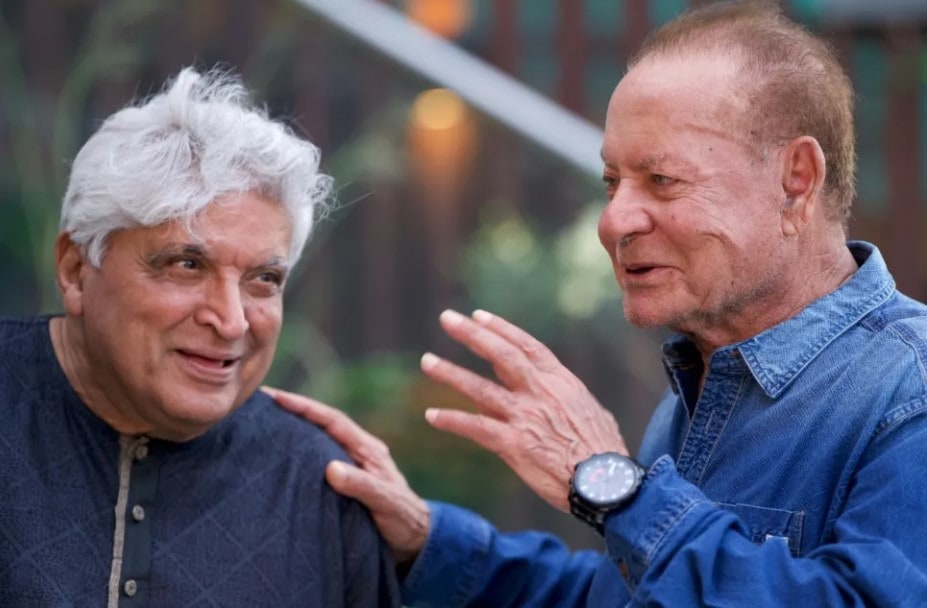
Salim Khan’s son Salman KhanAnd Javed Akhtar’s children, Farhan Akhtar and Zoya Akhtar, are co-producers of their parents’ documentary series. Did you ever fear there would be a conflict of interest there?
When I started shooting the documentary series, I was very afraid that the producers or the families would censor me. I spoke to Zoya and told her that I didn’t want to do a hagiographic piece or a propaganda piece. That’s not something I’m very interested in. Zoya had assured me that that’s not what they wanted to do either because there’s so much information available about them on the Internet that it would be silly to try to say, “They were really good people and amazing parents.”
I asked them a lot of uncomfortable questions. I only cut something when it didn’t fit the narrative, and not because someone told me so because “it doesn’t reflect well on our parents.” They have been very supportive and given me a lot of space. In fact, during the editing, none of the producers were involved. They only saw the cuts when I was done with them, and their comments were limited to casting issues and factual issues, and never to “this is too personal or this is too awkward.”
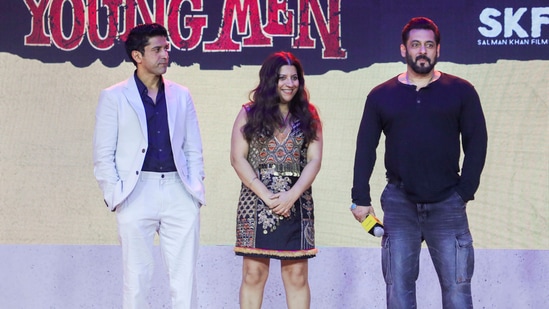
The most frequent criticism of your most popular film, Sholay (1975), has been that it borrows from the spaghetti western genre of Italian cinema. How important was it for you to address the criticisms of your filmography?
It was very important for me to address the criticism, the plagiarism, the fact that their scripts started to sound similar, that there was fatigue in their work as they kept having success because that really changed the game for them. So you hear what they say. Now that I know them as people, I believe what they say: “We did it. We knew we were doing it. We used to watch a lot of movies. We used to read a lot. We took everything that stuck with us and put it into our scripts.”
I couldn’t include many details for reasons of time or narrative movement. But when you’re doing a portrait of an artist, you also need to have his flaws and you also need to have why he did what he did. There’s no judgment about it, it is what it is. That’s what makes people three-dimensional, more human, and that’s also what makes a story more interesting. Personally, I don’t find stories that are only about the goodness of people interesting.
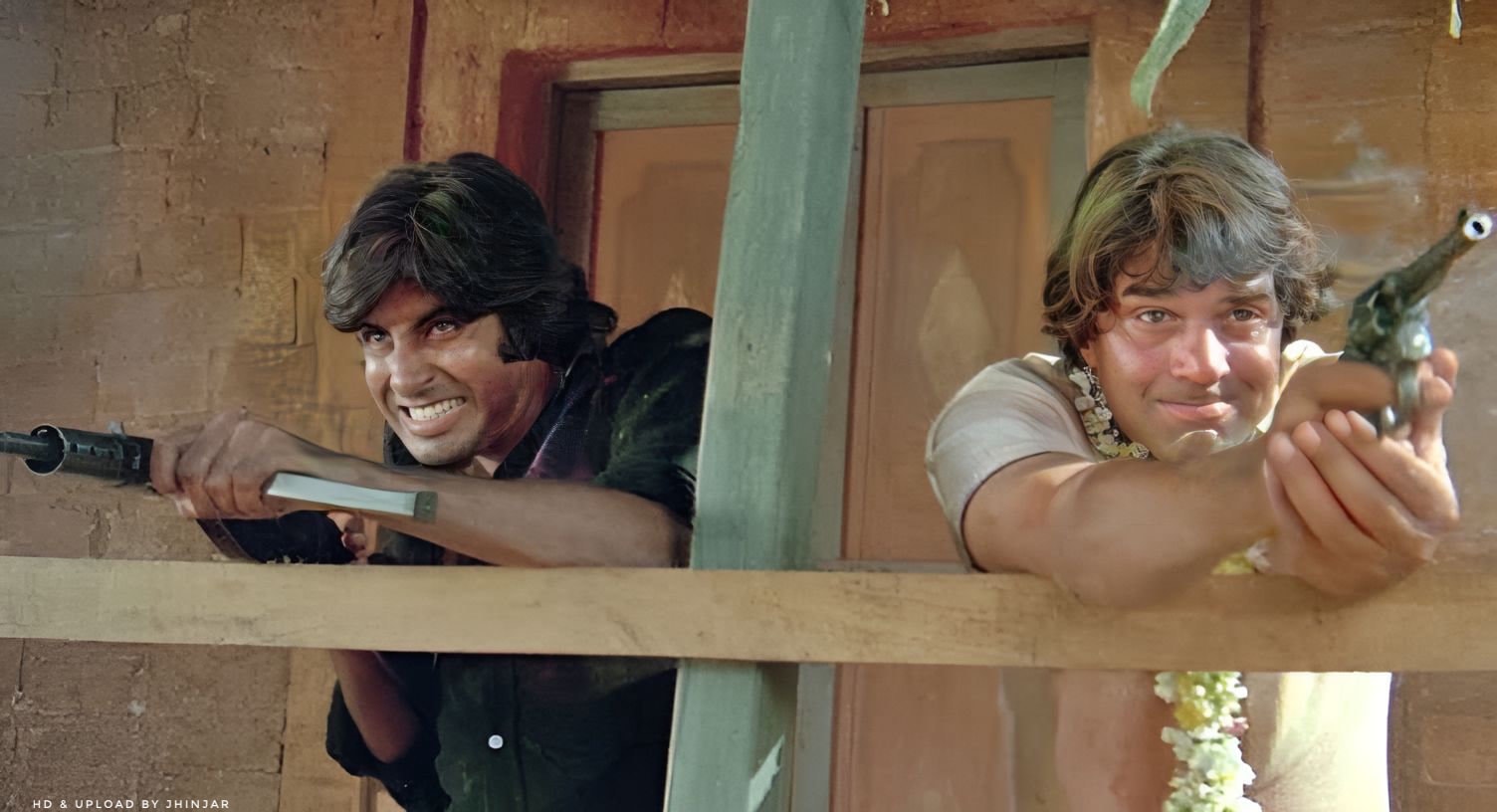
Zoya said she wanted a female perspective in the docuseries because Salim-Javed’s work is very male-centric. How important was it for you to address criticism that their films may have had progressive female characters, but still had very little to do with the male hero?
As much as I like Seeta Aur Geeta (1972), I didn’t like the fact that when Geeta (Hema Malini) dreams of confessing her identity to Sanjeev Kumar, he slaps her. And I was thinking how can she dream of getting slapped herself! I asked them this question and they admitted that they didn’t know any better. As Javed sahab said, “Main abhi Geeta ko aise bilkul bhi nahi likhta” (I wouldn’t write Geeta like that today). Because when he comes to Seeta’s house, he sees that Seeta is a very good cook, she sews very well. She also wants to do those things, she aspires to do them, which is not what she really is. Also, I imagine it was a different time, a different atmosphere.
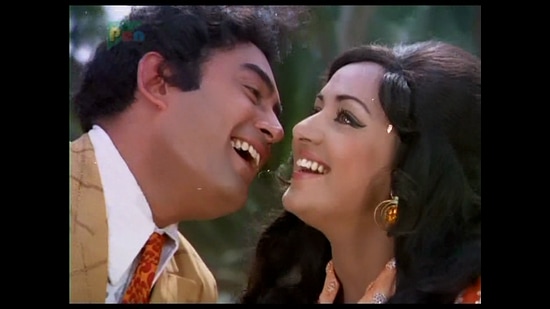
In the documentary series, Farah Khan points out that Vijay aka Amitabh Bachchan’s dialogue, “Main faike hue paise aaj bhi nahi uthata” from Yash Chopra’s Deewar (1975), might have been lifted from something they told a producer who was trying to trick them. Do you think Vijay is very much Salim-Javed?
Salim and Javed are Vijay together. They have all the qualities that Vijay had. Of course, there is a cinematic quality, a cinematic freedom in Vijay. More or less, they believed in the same things. That dignity and integrity should guide your life. That whole idea of dreaming big and manifesting what you dream, because they both came from very humble beginnings, but they dreamed big. Like that little Vijay who works as a boot-shiner (in Deewar) but believes that he needs to be treated with dignity and respect. That’s how they are. There are so many stories that they have told me that have found their way into their scripts.
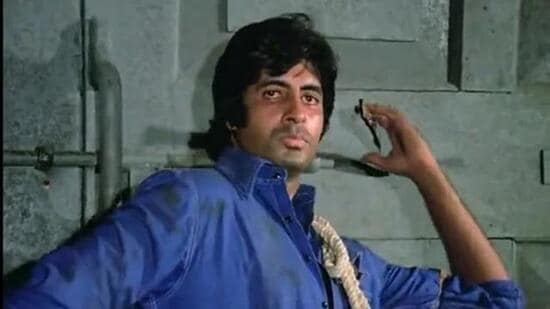
Which writer has been closest to Salim-Javed since their split? Do you think your producers Zoya and Reema Kagti will continue their legacy in Tiger Baby?
What made Salim-Javed successful was success, because nothing speaks better than success. When you have written 24 films and 20 of them are hits, it is a record like no other. That is the only thing the agency gave them, the credit they got in the industry. Reema and Zoya are a great combination. Like Salim-Javed, they have their independent strengths as scriptwriters and when they come together, they really enhance each other’s work. But we have to wait and see till their workload reaches 24 films. But they always think of new ideas, they are more contemporary. They are not really obsessed with one character like Vijay. I really hope they get the kind of success Salim-Javed had.
You have considered many voices from across the industry, from different generations. Was it a conscious decision not to let Amitabh Bachchan’s contributions weigh too heavily in the documentary series? Could his presence distract from the Salim-Javed legacy?
Amitabh Bachchan was the third Angry Young Man. To the world, he is the Angry Young Man, isn’t he? His inputs were very, very important. Yes, there were times when I thought I didn’t want it to be just about him, because the idea is to document or dive into the lives of Salim-Javed as creators of the Angry Young Man character. I identified certain points where I knew I really wanted their inputs. Deewar was one, Jai’s death in Sholay was another. Then, of course, Don (1978), because it was very different from the Vijay I had played. And there was a personal moment in the way they approached him for Zanjeer (1973) after 11 flops.
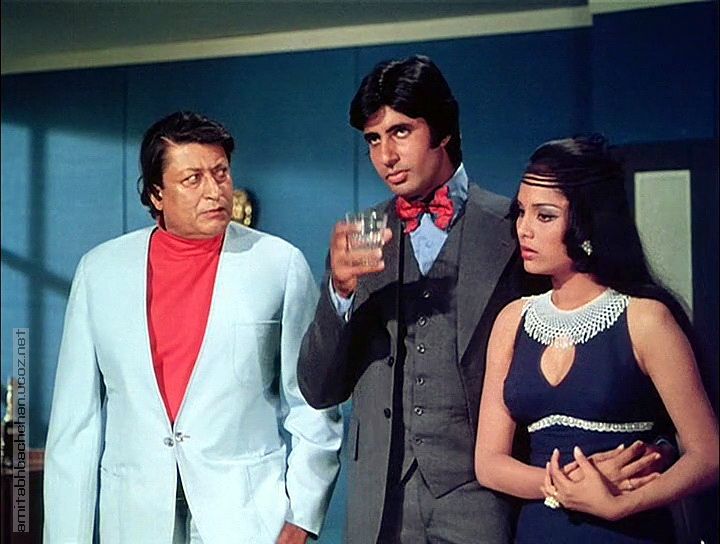
Zoya said at the trailer launch that while the initial idea behind the docuseries was to explore what went wrong with Salim and Javed that led to their separation, she confessed that she still doesn’t know more. Did you not dig deeper because you wanted their dignified silence on the separation to be reflected in the docuseries as well?
I think the reasons for their split are in the docuseries, but maybe not in the overt way people expected the split to be explored. So much time has passed since then, I never wanted to explore the day they broke up, what kind of conversation they had, who took whose side, because it’s almost like a breakup. All of that didn’t seem very elegant to me. They’re older now, so I don’t even know if they believe in the things they did when they were 30 and 40, now that they’re almost 80 and 90. It didn’t seem too relevant to me today. The bigger reasons seemed more interesting to me: they didn’t enjoy their work together, there was fatigue, they were doing similar work, and the idea of success had really played a role.
Your professional separation also coincided with that of your respective wives, Salma Khan and Honey Irani. Did you become completely new people after that stage?
Yes. Both of them had changes in their professional and personal lives at the same time. It’s funny that the same thing happened to both of them (smiles).
Angry Young Men is streaming on Prime Video India.
Disclaimer:
The information contained in this post is for general information purposes only. We make no representations or warranties of any kind, express or implied, about the completeness, accuracy, reliability, suitability or availability with respect to the website or the information, products, services, or related graphics contained on the post for any purpose.
We respect the intellectual property rights of content creators. If you are the owner of any material featured on our website and have concerns about its use, please contact us. We are committed to addressing any copyright issues promptly and will remove any material within 2 days of receiving a request from the rightful owner.

